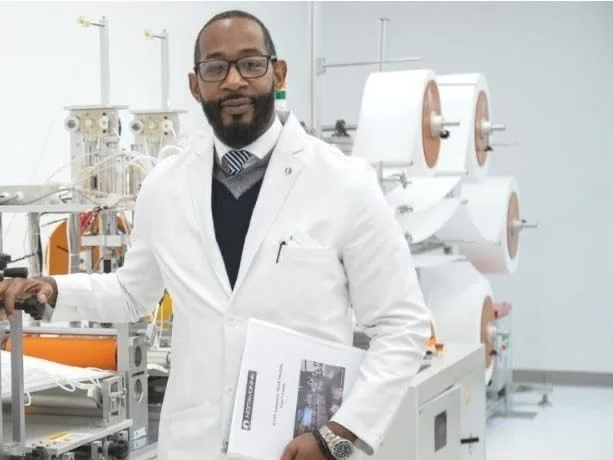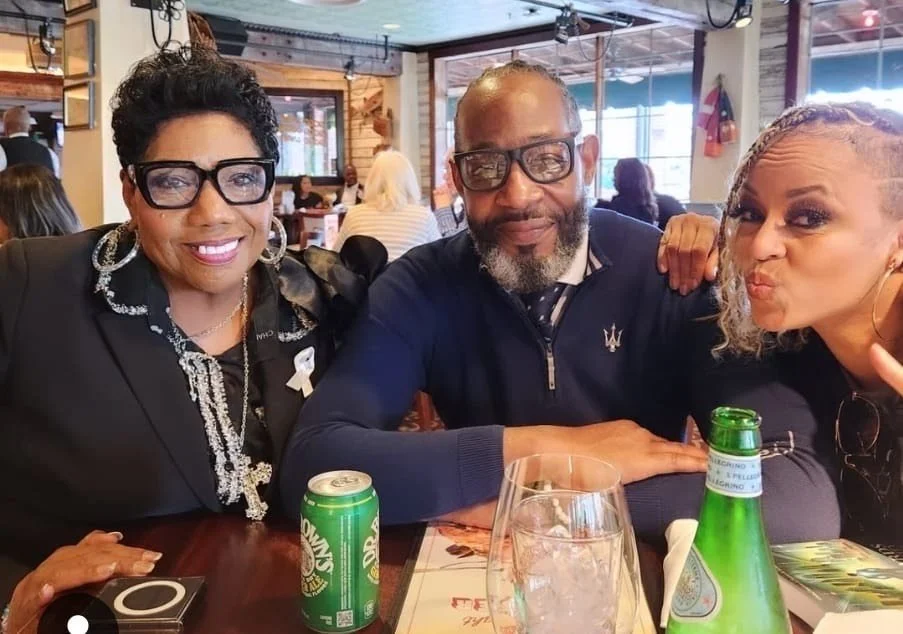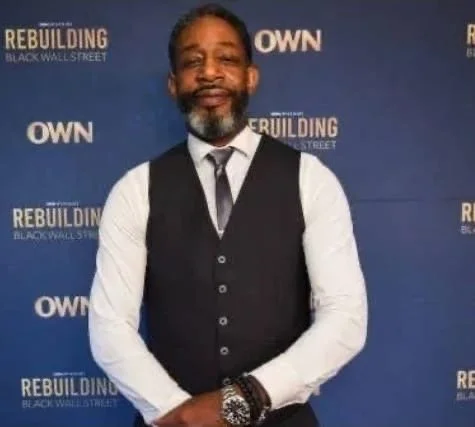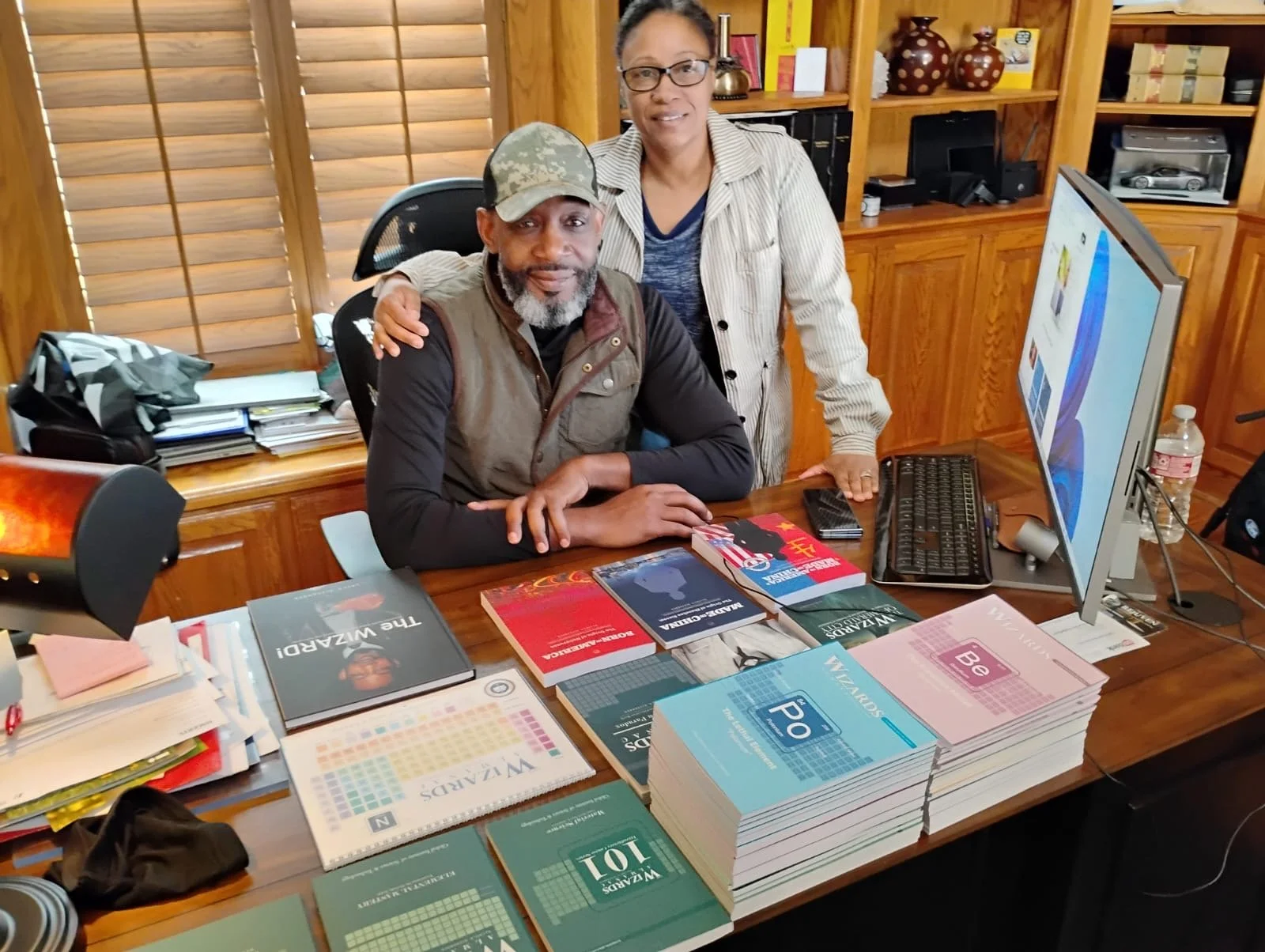The Man Who Hacked the Future: How Dr. Lael Alexander Is Rebuilding Tulsa, Reinventing Tech, and Reimagining Urban America
If Tony Stark had grown up in Tulsa and swapped his Iron Man suit for real-world infrastructure, he might look a lot like Dr. Lael Alexander.
Visionary. Inventor. Father of eight. Former Navy serviceman. Industrial design wizard. Tulsa’s own tech titan. Dr. Alexander isn’t just building devices—he’s building the future from the ground up, one city block, circuit board, and cloud server at a time.
At first glance, it’s easy to be overwhelmed by the sheer scope of his achievements: multiple global companies, groundbreaking scientific contributions, a $5 million redevelopment project on Black Wall Street, and an educational institute that spans continents. But what makes Dr. Alexander so compelling isn’t just the scale of what he’s done—it’s the intention behind it. Everything he touches is deeply rooted in solving a real problem and uplifting a real community.
From Curiosity to Creation
Before he was making history, Dr. Lael Alexander was making sense of the world around him. That early curiosity evolved into a career that now spans decades and disciplines—from computer science to industrial design, from data systems to urban development.
Unlike many in the science and tech world, Dr. Alexander didn’t take the traditional ivory-tower route. He followed in the footsteps of self-taught legends like Benjamin Franklin and Thomas Edison, relying on practical experience and sharp insight rather than just credentials. That hasn’t stopped him from changing the game. In fact, it’s part of what makes his approach so effective: he builds things for people, not for accolades.
His early career included work in the U.S. Navy, where he earned commendations for HR analytics. Later, he pivoted into the oil and gas sector before rocketing to prominence in telecom—earning the “Technology Entrepreneur of the Year” award in 2017. He’s even a multiple patent holder, including one for the groundbreaking “Loop Connectivity Protocol (802.11L).”
And yet, for someone who has helped shape the very fabric of wireless technology, Dr. Alexander remains laser-focused on the physical world too—specifically, how we live, work, and thrive in cities.
Noitavonne: More Than a Tech Company
Step into Noitavonne’s Tulsa-based Technology Industrial Park and you’ll see the future humming to life. With four active facilities focused on R&D, advanced manufacturing, logistics, and workforce training, Noitavonne is not your average tech company. It’s a blueprint for how local economies can benefit from global innovation.
Noitavonne was built to serve not just the market, but the community. With operations stretching to India and China, Noitavonne keeps its roots firmly planted in Tulsa, supporting the local economy and revitalizing one of America’s most historically significant Black communities: Greenwood, the original Black Wall Street.
Currently, Noitavonne is leading a $5 million expansion effort in the district. The plan? A four-story business hotel and office hub, upgrades to an 18-bay warehouse community, and a sweeping 23-acre mixed-use development with condos and 60 townhomes. It’s not just gentrification—it’s regeneration, built with the community, not over it.
SiloCloud: Rethinking the Data Game
While Noitavonne builds physical spaces, SiloCloud is all about managing invisible but crucial infrastructure: your data. In today’s world, data is gold, and SiloCloud treats it with the gravity it deserves. The platform redefines how organizations store, protect, and scale their digital assets—with user-friendly, scalable systems designed for real-world needs.
Innovation here doesn’t mean complexity—it means clarity and accessibility. SiloCloud’s rise in the data space is yet another example of Dr. Alexander seeing around corners—offering modern solutions before most people even recognize there’s a problem.
GIST: The Future of Education Is Here—and Enrolling
Bridging the gap between theory and application, Dr. Alexander founded the Global Institute of Science and Technology(GIST) with a bold mission: turn potential into power. With campuses in Tulsa, India, and China, GIST is cultivating the next wave of innovators by fusing traditional learning with hands-on experience in tech development.
Unlike most schools that focus on teaching facts, GIST emphasizes problem-solving, critical thinking, and real-world application. Students don’t just memorize equations—they build products, launch ideas, and walk away with marketable skills and global insight.
The Tulsa campus is now open for enrollment, a testament to Dr. Alexander’s belief that the next great inventor could be living right around the corner, just waiting for a shot.
AIDA: Reinventing Cities, One Smart Block at a Time
If all that weren’t enough, Dr. Alexander recently launched his most ambitious project yet: the American Industrial Development Association (AIDA). This organization is focused on one thing—reimagining American cities for the 21st century.
Through AIDA, Dr. Alexander is developing “smart cities” with sustainable infrastructure, integrated technology, and housing designed for modern life. Fiber-wired townhomes, green energy systems, cloud-based urban planning tools—all part of the blueprint.
More importantly, AIDA is addressing urgent national issues: the housing crisis, outdated infrastructure, and economic disenfranchisement. With the same relentless drive he brings to tech development, Dr. Alexander is engineering solutions that could make life better for millions.
Scientific Maverick: The Nitrogen Frontier
Beyond his business ventures, Dr. Alexander’s scientific curiosity is still going strong. His recent research in nitrogen exploration is venturing into the kinds of subatomic questions that redefine scientific paradigms. His inquiries delve into the behaviors of particles and forces that most people will never even hear about—yet could one day change how we understand the natural world.
It’s heady stuff, but for Dr. Alexander, it’s another path toward unraveling what’s possible.
Man, Mission, and Legacy
Away from the labs, servers, and building sites, Dr. Alexander is a family man. He’s a husband and father of eight, and still finds time to serve as a board member for Minority Startups LLC, supporting up-and-coming entrepreneurs of color.
His affiliations with major professional organizations like IEEE and CEA reflect his status in the tech elite, but his heart is still with the local community. Whether he’s investing in Tulsa’s youth, mentoring startup founders, or laying the groundwork for the next innovation district, Dr. Alexander’s legacy is grounded in something timeless: service.
Further amplifying his mission and expanding his public reach, Dr. Alexander is now officially represented by RDC PR, with Rocquel Caliste stepping in as his new publicist. Their partnership marks an exciting new chapter in how his story—and the impact of his work—will be shared with the world.
His ambition is as much about creating opportunity for others as it is about pushing the limits of what can be built. Innovation, in his world, is a tool for empowerment—not just progress.
The Bottom Line
In a world where buzzwords like "visionary" and "disruptor" are thrown around carelessly, Dr. Lael Alexander is the real deal. He doesn’t just dream big—he builds bigger. From revolutionizing how we connect with one another to rethinking how we inhabit our cities, he is living proof that innovation, when guided by purpose, can uplift entire communities.
And if he has his way, the blueprint he’s building in Tulsa won’t just transform a city—it’ll change the world.
RDC Magazine CEO EDITOR Rocquel Caliste



